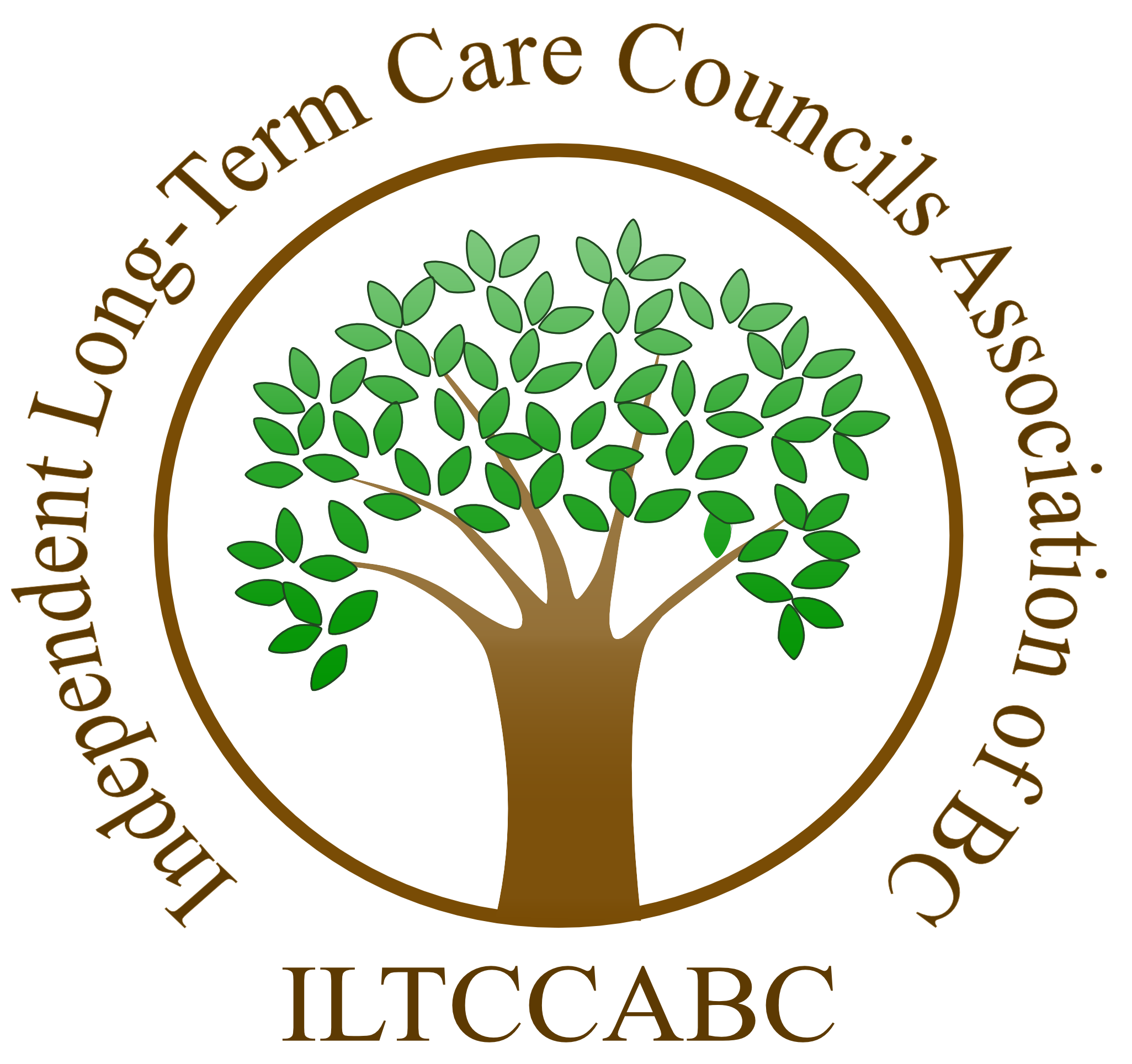The Independent Long-Term Care Councils Association of BC (ILTCCABC) plays a significant role in the LTC sector.
Belonging to a council enables residents and families to become involved in decisions that affect residents’ care and quality of life at the local, regional, and provincial levels.
Each of our member “Regional Associations of Family Councils” and their experienced volunteers can assist LTC home operators and residents’ families & representatives to learn about, establish and maintain effective “Family Councils” in LTC homes throughout BC.
These experienced volunteers share their knowledge of the LTC system and offer many resources to equip family councils with the tools they need to enable them to advocate effectively on behalf of all residents.
Regional Associations of Family Councils “invite” family councils from LTC homes to network with other family councils located within the same region. In a collective effort the regional associations gather perspectives and recommendations relevant to quality of life and quality of care for all residents
This collective voice is elevated to the Health Authorities and Ministry of Health.
Individual Family Councils & government making a difference together!

